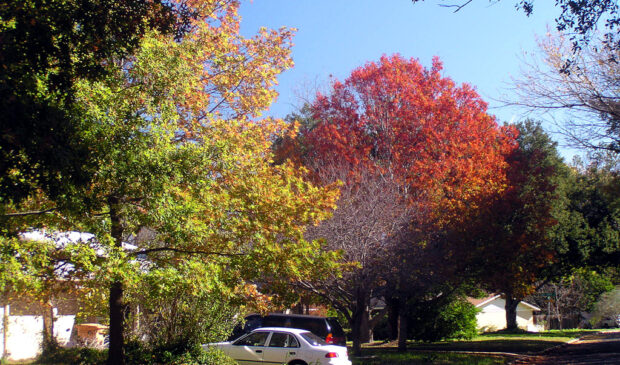SXSW panelists examine causes, effects of the city’s lack of Black homeowners
Friday, March 14, 2025 by
Chad Swiatecki A South by Southwest panel discussion earlier this week didn’t gloss over the challenges Black communities in Austin face if they’re not already owners of highly valuable residential real estate. During the panel Advancing Black Homeownership Through Housing Equity, Habitat for Humanity International CEO Jonathan Reckford used the panel’s location in Austin to frame how renters can be left behind by surging markets.
“Austin actually is a really interesting example of all the arrows moving in the right direction if you already owned a home, but disastrously wrong if you didn’t,” he said of his work advising prospective owners in the Austin area. “Housing prices are up 250 percent in the last five years, so there’s a real gap between what it costs to acquire a home and and what you can afford.”
Reckford and other panelists used the talk to break down the many opportunities lost by families who don’t have a home as an asset to unlock other opportunities, as well as the community benefits lost when renters are effectively shut out from owning a home.
Andre Perry, a senior fellow at the Brookings Institution, presented research showing that homes in Black neighborhoods are routinely undervalued, leading to $156 billion in lost equity nationwide that limits individual wealth-building and deprives communities of resources that could be reinvested in businesses, education and infrastructure. Perry added that homeownership is one of the strongest predictors of life expectancy, municipal investment and economic mobility, making the issue far more than a matter of personal financial security.
“Without question, in every model we ran, homeownership was in the top three (indicators). Certainly there was income, and education and a lot of other things, but when you live in a geographic area where homeownership is over 65 to 75 percent, life expectancy is pretty relatively normal to other groups. But when it’s below that, it is not,” he said. “Homeownership is connected to education, it’s connected to how many resources your county and municipality has for basic services.”
Daniel Gura, executive director for Habitat for Humanity International, said one of the biggest challenges facing Black homebuyers is a lack of awareness about their eligibility. Because of that closed-off mindset, Gura said the organization will spend up to 18 months providing education and other resources to help new homeowners prepare and manage the responsibilities that come with property ownership.
“A lot of people who are eligible and ready to be homeowners just don’t know, right? They don’t know because they either haven’t trusted banks or banks aren’t talking to them and they don’t know that in fact they’re ready,” he said. “The first thing is, do you get comfortable with this idea that you are worthy, eligible and able to own a home in perpetuity? That’s a scary thing for some marginalized communities.”
The panelists agreed that solutions must include increased investment, policy reforms and zoning changes to allow for more affordable housing development. Perry stressed that “nothing grows without investment,” pointing to decades of underfunding in Black communities as a primary factor in today’s housing inequities.
Reckford highlighted that homeownership is not just about creating personal wealth but about stabilizing communities, improving schools and fostering civic engagement.
“There are great opportunities in these communities but the problem is so much of the wealth is extracted. The people who own the land and the units don’t live in the community, so the very high rents per square foot are actually going out rather than revolving in the community,” he said. “At a time where we’ve underbuilt housing for the last 12 years in some of the most historically marginalized communities, you have a different challenge with investors. They’re just sitting on land because they’re seeing acceleration but they’re not investing or fixing up or doing anything with it.”
Photo made available through a Creative Commons license.
The Austin Monitor’s work is made possible by donations from the community. Though our reporting covers donors from time to time, we are careful to keep business and editorial efforts separate while maintaining transparency. A complete list of donors is available here, and our code of ethics is explained here.
You're a community leader
And we’re honored you look to us for serious, in-depth news. You know a strong community needs local and dedicated watchdog reporting. We’re here for you and that won’t change. Now will you take the powerful next step and support our nonprofit news organization?






